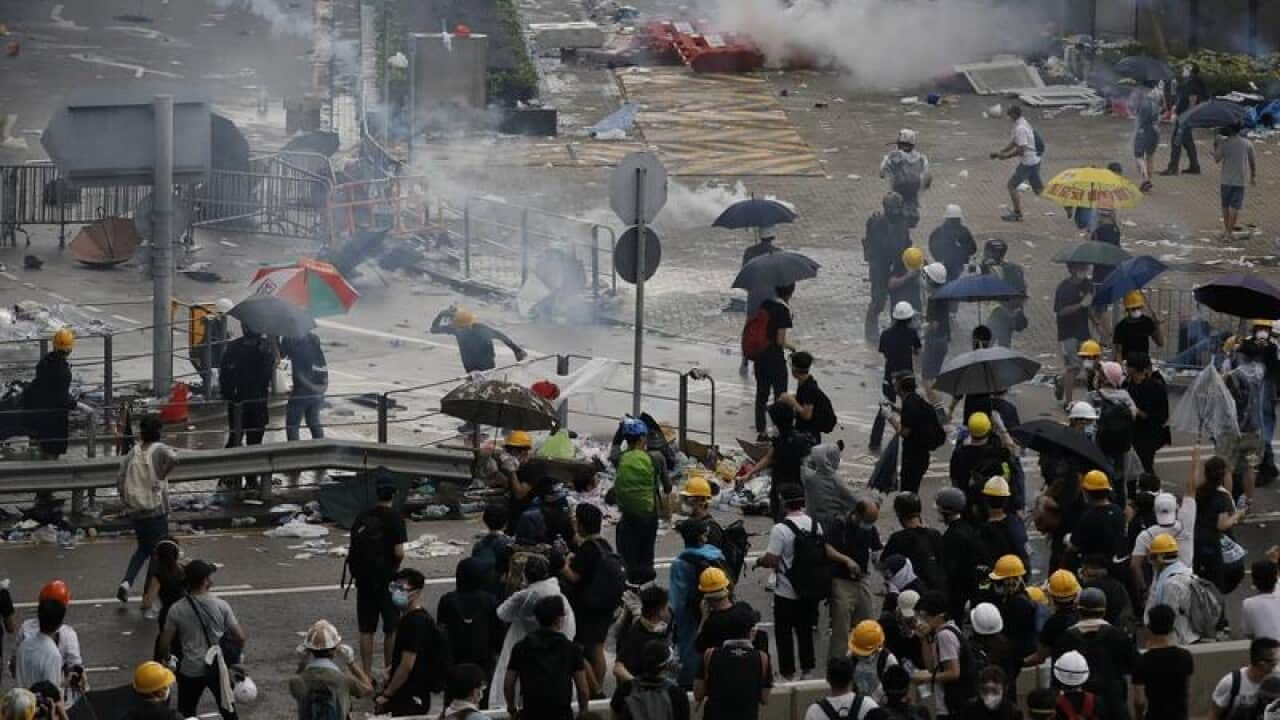Hong Kong authorities are bracing for more protests by demonstrators trying to prevent Beijing-appointed Chief Executive Carrie Lam from pushing through a bill that would allow suspects from the territory to be tried in mainland Chinese courts.
As of Friday afternoon, more than 30,000 people had signed a petition protesting the use of force by police during violent clashes with protesters earlier in the week.
The busy downtown area was calm on Friday morning after days of protests by students and human rights activists.
But a demonstration by a group of mothers angry with police use of rubber bullets, batons and other forceful measures was expected Friday evening.
Still more protests were planned for Sunday and Monday.
Demonstrators say they are committed to preventing the government from enacting amendments they see as eroding the legal autonomy Hong Kong retained when Britain ended its colonial rule of the city in 1997, handing sovereignty to Beijing.
The clashes on Wednesday drew tens of thousands of mostly young residents and forced the legislature to postpone debate on the bill.
Pressure on the Hong Kong leader, caught between a restive public and Communist rulers in Beijing, is growing, said Willy Lam, an expert on Chinese politics at the Chinese University of Hong Kong.
Calls to amend the plan or for Carrie Lam to step down are coming from many sectors, including business leaders, he noted, adding that it's President Xi Jinping in Beijing who will decide, not Carrie Lam.
"If the momentum continues to grow, then there is a high possibility that Xi Jinping might strike for a compromise and postpone the bill indefinitely," Willy Lam said.
"There's a possibility Beijing might strike a compromise and the blame will be put on Carrie Lam."
Police said they arrested 11 people on charges such as assaulting police officers and unlawful assembly.
Twenty-two officers had been injured in the fracas and hospitals said they had treated 81 people for protest-related injuries.
The standoff between police and protesters is Hong Kong's most severe political crisis since the Communist Party-ruled mainland took control in 1997 with a promise not to interfere with the city's civil liberties and courts.
Beijing has condemned the protests but so far has not indicated whether it is planning harsher measures.
President Xi, China's strongest leader in decades, has demanded that Hong Kong follow Beijing's dictates, saying it would not tolerate the city becoming a base for what the Communist Party considers a foreign-inspired campaign to undermine its rule over the vast nation of 1.4 billion people.
Hong Kong residents enjoy liberties denied to Chinese living in the mainland: June 4 brought one of the biggest vigils in recent years to commemorate the 30th anniversary of the 1989 protests in Beijing.
But many in the city worry their freedoms have been diminishing since Xi came to power in 2012.

